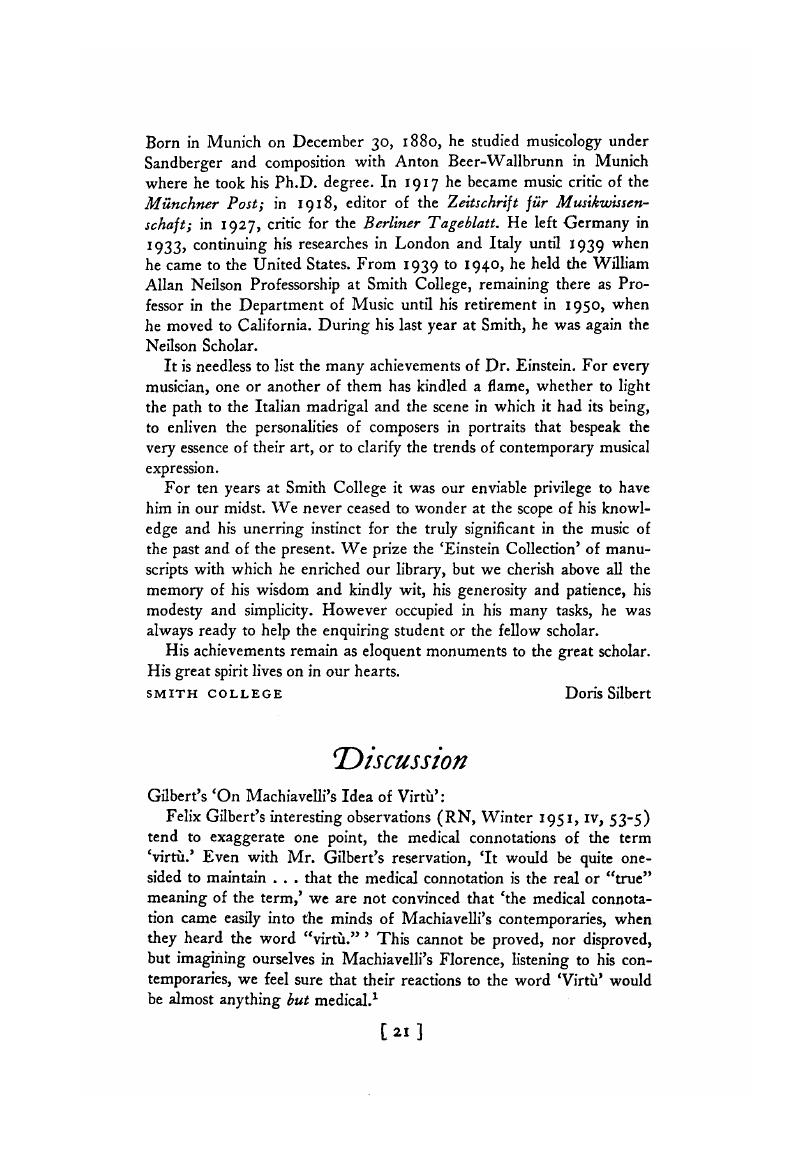Article contents
Discussion
Published online by Cambridge University Press: 20 November 2018
Abstract

- Type
- Discussion
- Information
- Copyright
- Copyright © Renaissance Society of America 1952
References
1 Charles D. O'Malley, specialist on Renaissance medical history at the University of California Medical School, in response to a query on this point, reminded us that the Florentines seem to have been even less interested in medicine than other contemporaries of Machiavelli.
2 The non-medical aspects of virtù, with which we are not concerned, have been explored by scholars such as Felix Gilbert and the authorities cited by him. To these we would add Leslie Walker, whose 1950 translation of, and commentary on, The Discourses (especially p. 99 ff., of the introduction) is apropos; also another Gilbert (Allan), whose Machiavelli's Prince and Its Forerunners (1938) and a forthcoming three-volume expansion of his 1941 translation of The Prince and Other Works are most significant. Mr. Allan Gilbert has been so kind as to allow us to read a portion of the introduction to the last mentioned work, and it gives promise of enlightening and stimulating ideas on the virtù problem.
3 Anyone interested in further Machiavellian references to medicine can readily check those in The Discourses, by using the index and extensive notes in Walker's translation. Out of five references to medicine therein, none are directly associated with virtù.
- 2
- Cited by




